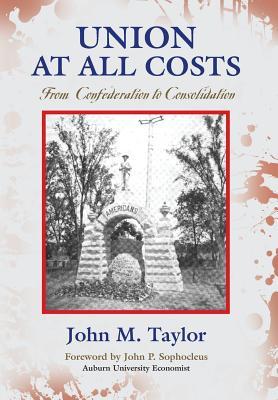Is the Union voluntary or an agreement with no escape route? Setting the tone, John M. Taylor leads off by noting the travails of a respected ancestor. Major questions in America are explored, including differing views of the meaning of union. Though numerous issues led to war, most modern establishment historians generalize everything down to one. Pre-war and post-war years are largely ignored, trivialized, or sanitized.
The four-year travesty of 1861-65 represents the most destructive period in American history and a change in the republic itself. The conflict-the agricultural South versus the North, where agriculture was important, but corporate, banking, and industrial interests swung the most weight. Jeffersonian States' Rights meets Hamiltonian Nationalism.
Modern portrayals of Lincoln perpetuate the winner's narrative; facts that fall outside the politically correct script are cast asunder. A power-seeking individual such as Lincoln was required to transform a voluntary confederation into a top-heavy centralized government. Protectionist Whigs and other big government advocates created the centralizing vehicle-the Republican Party-to accomplish their goals. In 1860, they selected Abraham Lincoln to implement the agenda. Taylor shows how Lincoln and the Radical Republicans planted the seeds of leviathan we witness today.

Is the Union voluntary or an agreement with no escape route? Setting the tone, John M. Taylor leads off by noting the travails of a respected ancestor. Major questions in America are explored, including differing views of the meaning of union. Though numerous issues led to war, most modern establishment historians generalize everything down to one. Pre-war and post-war years are largely ignored, trivialized, or sanitized.
The four-year travesty of 1861-65 represents the most destructive period in American history and a change in the republic itself. The conflict-the agricultural South versus the North, where agriculture was important, but corporate, banking, and industrial interests swung the most weight. Jeffersonian States' Rights meets Hamiltonian Nationalism.
Modern portrayals of Lincoln perpetuate the winner's narrative; facts that fall outside the politically correct script are cast asunder. A power-seeking individual such as Lincoln was required to transform a voluntary confederation into a top-heavy centralized government. Protectionist Whigs and other big government advocates created the centralizing vehicle-the Republican Party-to accomplish their goals. In 1860, they selected Abraham Lincoln to implement the agenda. Taylor shows how Lincoln and the Radical Republicans planted the seeds of leviathan we witness today.